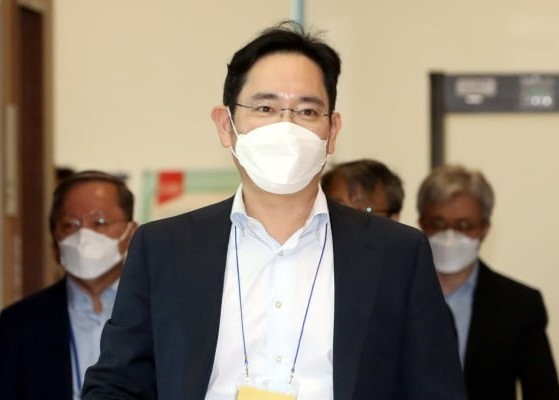Banks keen to lend to Samsung heirs for inheritance tax
By Apr 14, 2021 (Gmt+09:00)
LG Chem to sell water filter business to Glenwood PE for $692 million


Kyobo Life poised to buy Japan’s SBI Group-owned savings bank


KT&G eyes overseas M&A after rejecting activist fund's offer


StockX in merger talks with Naver’s online reseller Kream


Mirae Asset to be named Korea Post’s core real estate fund operator



South Korean banks are queuing up to extend credit to Samsung Group's de-facto leader Jay Y. Lee and his family who are due to pay over 2 trillion won, as part of inheritance taxes estimated at over 12 trillion won ($11 billion), by the end of this month.
Lee and his family, including his two sisters, have inherited over around 23 trillion won ($21 billion) worth of stocks, real estate and art from their late father Lee Kun-hee, who passed away in October of last year at the age of 78.
"All of the banks are lining up to extend credit to Vice Chairman Lee," said a domestic bank's executive on Apr. 14. "Considering Lee's creditworthiness and the value of his shareholdings, there is no reason not to lend to him."
All of the tax must be reported to the tax authorities by Apr. 30 of this year, by when they are expected to pay one-sixth of the total and then pay the remainder in five annual installments at an interest rate of 1.8% per year.
The tax bill is likely to be the highest amount imposed on a South Korean company in the nation's history of charging inheritance tax, considering that, at the time of his death, the group's late patriarch was the richest man in the country.
The inherited assets are composed of shares, including stakes in Samsung Electronics Co. and other Samsung units, worth a combined 19 trillion won; an art collection valued at 2 trillion-3 trillion won; real estate; and cash. Of the total, taxes on inherited shares alone are estimated at slightly over 11 trillion won.
Banks will likely use the Lee family's shareholdings and savings account balances as collateral for the loans. The banks can lend up to 50-70% of the shareholdings' value, and 100% for savings-secured loans. In comparison, credit loans are capped at 500 million to 1 billion won per borrower.
Another banking executive noted that loans extended to Samsung are expected to revive banks' corporate lending businesses.
"We have been losing ground in the corporate financing market as large business groups have shifted to bond issues to raise money," said the executive. "For the sake of our future relationship with Samsung, it would be right to extend credit to them."
Some industry sources expect Lee's family to put part of the inherited real estate and art collection on the market to fund the tax payment.

Appraisals were recently completed on the late chairman's art collection. His 13,000 pieces of art include numerous government-designated national treasures and paintings of iconic Western artists including Bacon, Chagall, Giacometti, Monet, Picasso and Rothko. They are valued at 2.5 trillion-3 trillion won at current market prices.
The Lee family is discussing donating some of the Korean antique collection to national museums in the country, which will be exempt from inheritance taxes. The current law prohibits overseas transfer of any domestic antique item more than 50 years from its production date.
The late Samsung chairman's lavish art collection has fueled debate about
amending the country’s tax system to allow in-kind tax payments from art – in a move to prevent rare items from being sold overseas and to ensure they remain in the country as a part of its public cultural heritage.
Under current law in South Korea, only real estate and securities can be used to pay tax in kind.
The junior Lee is discussing the tax payment with his lawyers. He has been serving his remaining prison term since January of this year when his two-and-a-half-year prison sentence on bribery and embezzlement charges was finalized. Currently, he is recovering from emergency appendicitis surgery in Samsung General Hospital in southern Seoul.
Write to Shin-Young Park at nyusos@hankyung.com
Yeonhee Kim edited this article.
-
 Samsung GroupLee Kun-hee’s lavish art collection fuels debate on tax payment scheme
Samsung GroupLee Kun-hee’s lavish art collection fuels debate on tax payment schemeMar 04, 2021 (Gmt+09:00)
4 Min read -
 Post Lee Kun-heeSamsung heirs may face record-high $10 bn inheritance tax bill
Post Lee Kun-heeSamsung heirs may face record-high $10 bn inheritance tax billDec 22, 2020 (Gmt+09:00)
2 Min read -
 Samsung heirs’ $9 bn tax bill may lead to share sale, weak control
Samsung heirs’ $9 bn tax bill may lead to share sale, weak controlOct 25, 2020 (Gmt+09:00)
3 Min read


